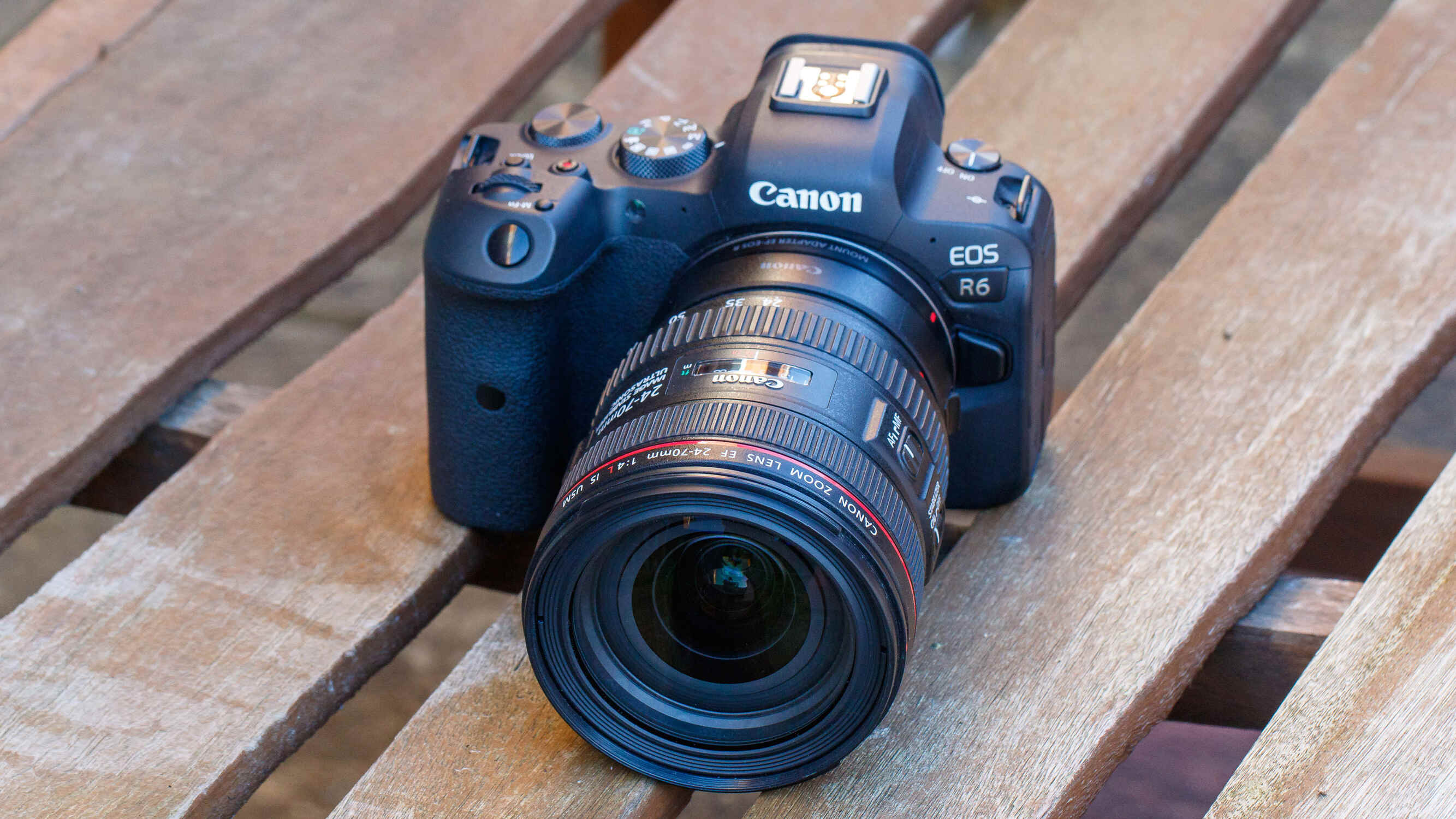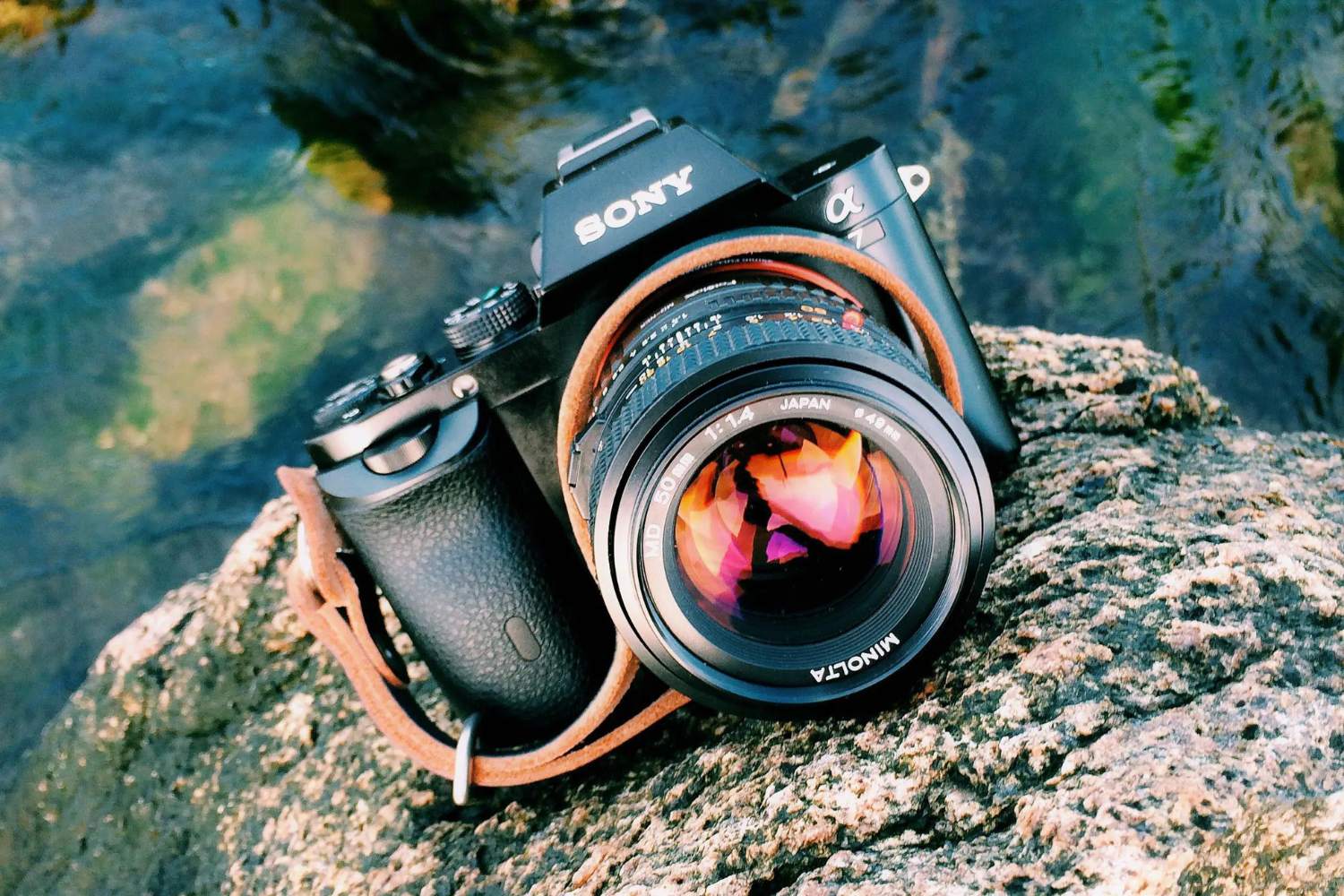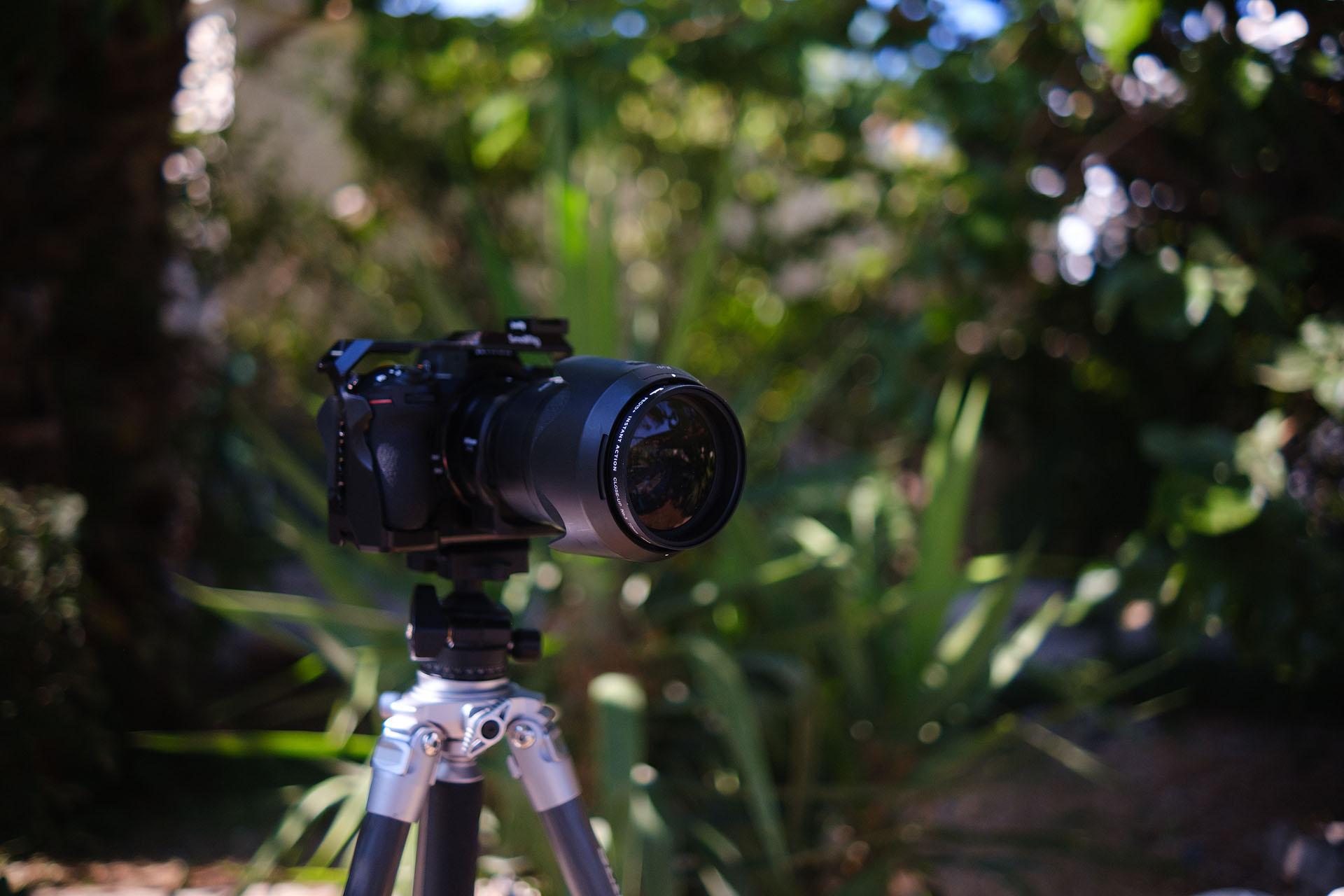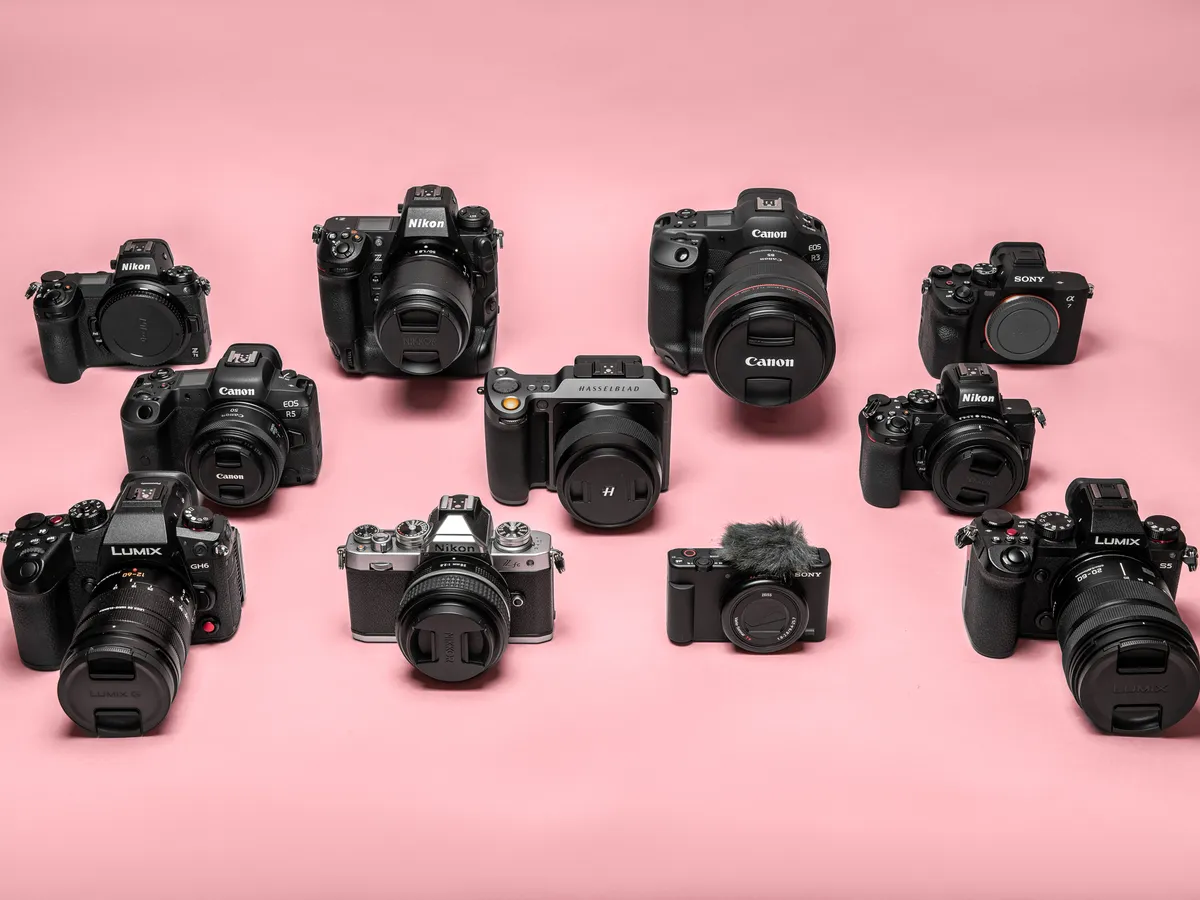Introduction
Mirrorless cameras have revolutionized the world of photography with their compact design, versatility, and exceptional image quality. As photography enthusiasts seek to expand their creative horizons, many are drawn to the idea of using Canon EF lenses with mirrorless cameras. This combination offers the potential to leverage the renowned optical quality of Canon lenses with the cutting-edge technology of mirrorless systems.
By understanding the compatibility of Canon EF lenses with various mirrorless camera models, photographers can make informed decisions when investing in new gear. Whether you are a seasoned professional or an avid hobbyist, the ability to use Canon EF lenses with a mirrorless camera opens up a world of possibilities for capturing stunning images and videos.
In this article, we will delve into the realm of mirrorless cameras and explore the compatibility of Canon EF lenses with these innovative devices. By examining the Canon EF lens mount and identifying mirrorless cameras that support this versatile lens system, you will gain valuable insights into crafting a seamless photographic experience. Let's embark on a journey to uncover the exciting possibilities that await when pairing Canon EF lenses with mirrorless cameras.
What are Mirrorless Cameras?
Mirrorless cameras represent a modern evolution in the realm of digital photography, offering a compelling alternative to traditional DSLR (Digital Single-Lens Reflex) cameras. Unlike DSLRs, which employ a complex system of mirrors to direct light from the lens to the optical viewfinder, mirrorless cameras feature a streamlined design that eliminates the need for a mechanical mirror and pentaprism.
At the heart of a mirrorless camera is its electronic viewfinder (EVF) or rear LCD display, which provides a real-time preview of the image as captured by the image sensor. This innovative approach allows photographers to visualize the final outcome of their shots before pressing the shutter button, facilitating precise composition and exposure adjustments.
One of the defining characteristics of mirrorless cameras is their compact and lightweight construction. By removing the bulky mirror box, these cameras achieve a significantly smaller form factor, making them an appealing choice for photographers who prioritize portability without compromising on image quality.
Another key feature of mirrorless cameras is their versatility, as they can accommodate a diverse range of interchangeable lenses to suit various photographic styles and shooting scenarios. This adaptability, combined with advanced autofocus systems and high-resolution sensors, empowers photographers to capture stunning imagery across genres, including landscapes, portraits, street photography, and more.
Furthermore, the absence of a moving mirror mechanism results in quieter operation, making mirrorless cameras discreet and ideal for capturing candid moments without causing distractions. Additionally, the electronic viewfinder offers benefits such as real-time exposure simulation, focus peaking, and customizable digital overlays, enhancing the overall shooting experience.
As mirrorless technology continues to evolve, these cameras have become increasingly popular among photography enthusiasts and professionals seeking a blend of performance, portability, and creative flexibility. With an array of innovative features and compatibility with a wide selection of lenses, mirrorless cameras have established themselves as formidable tools for unleashing artistic vision and capturing breathtaking imagery.
Canon EF Lens Mount
The Canon EF (Electro-Focus) lens mount is a proprietary system developed by Canon for its line of autofocus lenses. Introduced in 1987, the EF mount has since become a standard for Canon’s interchangeable lenses, catering to a wide range of photographic and cinematographic applications. This versatile lens mount is characterized by its electronic interface, which enables seamless communication between the lens and the camera body, facilitating advanced autofocus, aperture control, and image stabilization functionalities.
One of the standout features of the Canon EF lens mount is its compatibility with a diverse array of Canon cameras, including DSLRs, mirrorless cameras, and cinema cameras. This universal compatibility underscores Canon’s commitment to providing photographers and videographers with a rich ecosystem of lenses that can be seamlessly integrated across different imaging platforms.
The EF mount’s large diameter and short flange focal distance contribute to the optical performance of Canon lenses, allowing for the creation of high-quality optics with wide apertures and advanced optical designs. This design philosophy has resulted in a comprehensive lineup of EF lenses renowned for their exceptional sharpness, clarity, and overall imaging prowess.
Furthermore, Canon EF lenses are renowned for their robust build quality and weather-sealed construction, ensuring durability and reliability in diverse shooting conditions. Whether capturing stunning landscapes in rugged environments or documenting fast-paced action in challenging weather, EF lenses are engineered to deliver consistent performance and uncompromising image quality.
As Canon continues to innovate and expand its lens offerings, the EF mount remains a cornerstone of the company’s optical heritage, embodying a legacy of excellence in lens design and engineering. With a vast selection of prime, zoom, and specialty lenses, the EF mount empowers photographers and filmmakers to explore their creativity and achieve their artistic vision with unparalleled precision and clarity.
Mirrorless Cameras Compatible with Canon EF Lenses
Photographers seeking to harness the optical prowess of Canon EF lenses with mirrorless cameras have a compelling array of options to consider. Several manufacturers have developed lens mount adapters that enable seamless integration of Canon EF lenses with their respective mirrorless camera systems, effectively expanding the compatibility and functionality of these lenses.
Sony, a prominent player in the mirrorless camera market, offers the LA-EA5 lens adapter, which allows photographers to use Canon EF lenses with Sony E-mount mirrorless cameras. This adapter not only provides full autofocus and auto exposure support but also retains the image stabilization capabilities of compatible lenses, ensuring a seamless transition for photographers migrating from Canon DSLRs to Sony mirrorless systems.
Similarly, Canon has introduced the Mount Adapter EF-EOS R and Control Ring Mount Adapter EF-EOS R, designed to enable the use of Canon EF and EF-S lenses with the Canon EOS R series of full-frame mirrorless cameras. These adapters maintain full communication between the lens and camera, preserving autofocus, aperture control, and image stabilization functionality, thereby offering Canon users a pathway to leverage their existing EF lens investments within the mirrorless ecosystem.
Fujifilm has also catered to photographers seeking to utilize Canon EF lenses with their X-series mirrorless cameras through the use of third-party lens adapters. These adapters provide a means to achieve seamless integration of Canon EF lenses with Fujifilm X-mount cameras, granting photographers access to a diverse range of focal lengths and optical characteristics offered by Canon’s EF lens lineup.
Furthermore, Panasonic’s Lumix S series of full-frame mirrorless cameras, in conjunction with the Panasonic DMW-MA2M or DMW-MA1 mount adapters, allows photographers to adapt Canon EF lenses for use with Lumix S cameras, preserving essential functionalities such as autofocus and aperture control.
Additionally, the versatility of Canon EF lenses can be harnessed with other mirrorless camera systems through the use of third-party lens adapters, providing compatibility with brands such as Nikon, Olympus, and more, thereby expanding the creative possibilities for photographers seeking to explore the unique optical characteristics of Canon EF lenses across different mirrorless platforms.
By leveraging these lens mount adapters, photographers can seamlessly integrate Canon EF lenses with a diverse selection of mirrorless cameras, unlocking a world of creative potential and expanding the horizons of visual storytelling.
Conclusion
As the realm of photography continues to evolve, the compatibility of Canon EF lenses with mirrorless cameras represents a compelling convergence of optical excellence and technological innovation. The seamless integration of Canon’s renowned lens ecosystem with the advanced capabilities of mirrorless camera systems has empowered photographers to explore new creative frontiers and expand their artistic horizons.
With a myriad of lens mount adapters available from leading manufacturers, photographers can bridge the gap between Canon EF lenses and various mirrorless camera platforms, unlocking a wealth of optical possibilities and enabling the realization of their photographic vision with unparalleled precision and versatility.
Furthermore, the adaptability of Canon EF lenses across different mirrorless systems underscores the enduring legacy of Canon’s optical heritage and commitment to empowering photographers with a rich tapestry of imaging tools that transcend traditional boundaries.
Whether capturing breathtaking landscapes, immortalizing candid moments, or delving into the intricacies of portrait photography, the compatibility of Canon EF lenses with mirrorless cameras offers a gateway to a world of creative expression and visual storytelling.
As technology continues to advance and photographic innovation unfolds, the synergy between Canon EF lenses and mirrorless cameras stands as a testament to the enduring pursuit of photographic excellence and the boundless potential for creative exploration in the ever-evolving landscape of visual artistry.

























